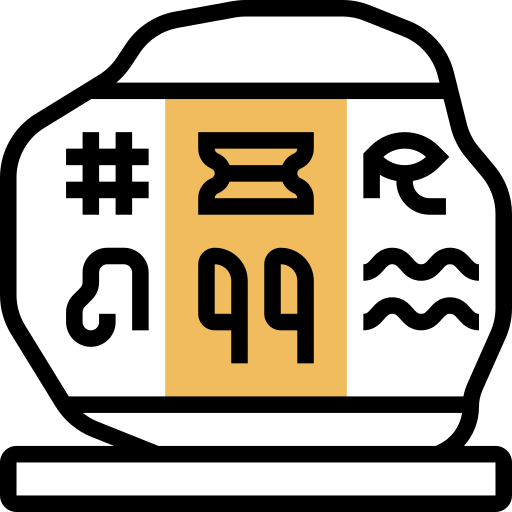Bullet journaling is a beloved practice for organizing your life, tracking habits, and expressing creativity. Adding calligraphy to your bullet journal not only elevates its aesthetic appeal but also makes the process more mindful and rewarding.
Whether you’re learning how to write a bullet journal or seeking tips on how to write bullet journal calligraphy, this guide will walk you through everything you need to know to get started, develop your style, and enjoy the process.
What you will learn from this blog:
What Is Bullet Journal Calligraphy?
Bullet journal calligraphy is the art of creating beautiful, stylized lettering within the pages of your bullet journal. It combines the structure of bullet journaling, a system for organization, reflection, and planning with expressive, decorative flair. You can use calligraphy for headers, monthly spreads, or even how to write quotes in a bullet journal.
Why Add Calligraphy to Your Bullet Journal?
- Personalization: Adds a unique touch, making your journal truly yours.
- Aesthetic Appeal: Beautiful lettering elevates the look of your pages.
- Mindfulness: The slow, deliberate motion can be meditative.
- Skill Building: Practicing calligraphy improves fine motor skills and creativity.
Essential Supplies for Bullet Journal Calligraphy
Before you start, gather the right tools for how to make your own bullet journal:
1. Bullet Journal
Choose a journal with smooth, bleed-resistant paper. Popular brands include Leuchtturm1917, Scribbles That Matter, and Archer & Olive.
2. Calligraphy Pens
- Brush Pens: Flexible tips mimic traditional calligraphy brushes.
- Felt-tip Pens: For faux calligraphy and simple hand lettering.
- Fountain Pens: For advanced users who want classic calligraphy styles. This is what I use for my bullet journal.
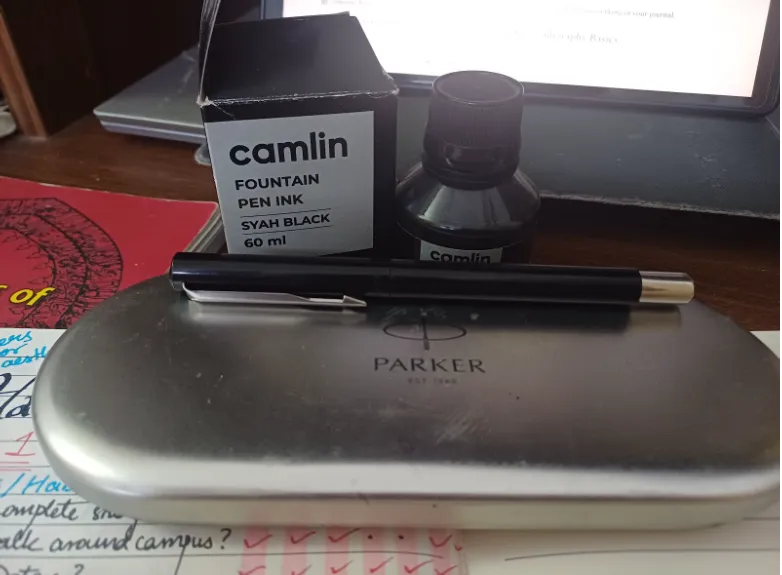
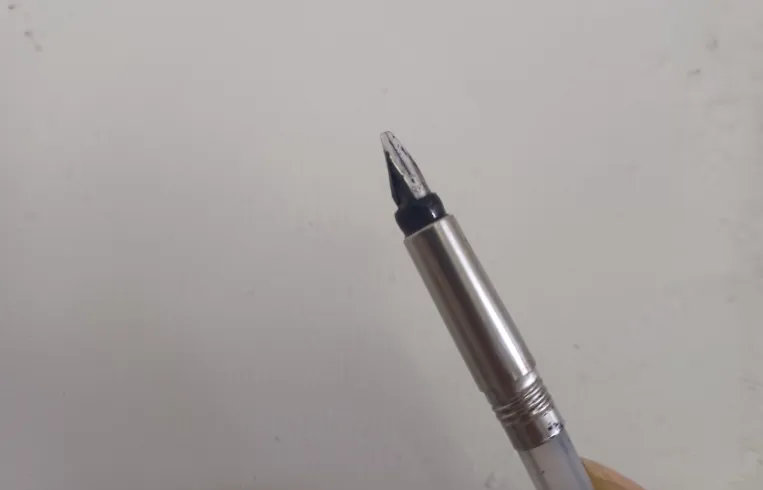
3. Pencils and Erasers
Sketching guidelines helps maintain consistency.
4. Ruler
For drawing straight baselines and guidelines.
5. Practice Paper
Use scrap or grid paper for drills before working in your journal.
Understanding Calligraphy Basics
The Anatomy of a Letter
- Downstrokes: Drawn downward, typically thicker.
- Upstrokes: Drawn upward, usually thinner.
- Crossbars, Loops, and Flourishes: Add decorative style.
The Principle of Pressure
- Apply more pressure on downstrokes for thicker lines.
- Use less pressure on upstrokes for thinner lines.
Step-by-Step: Getting Started with Bullet Journal Calligraphy
1. Warm Up With Basic Strokes
Practice straight lines, ovals, loops, waves, and curves. This is helpful for anyone learning how to improve your handwriting bullet journal.
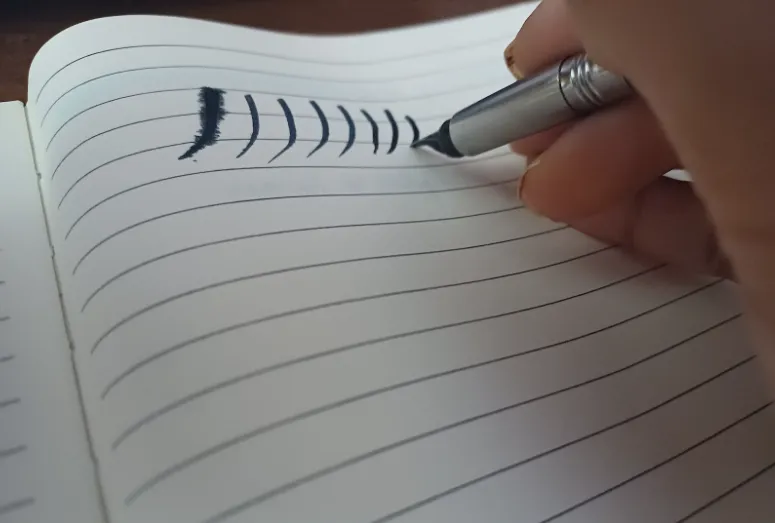
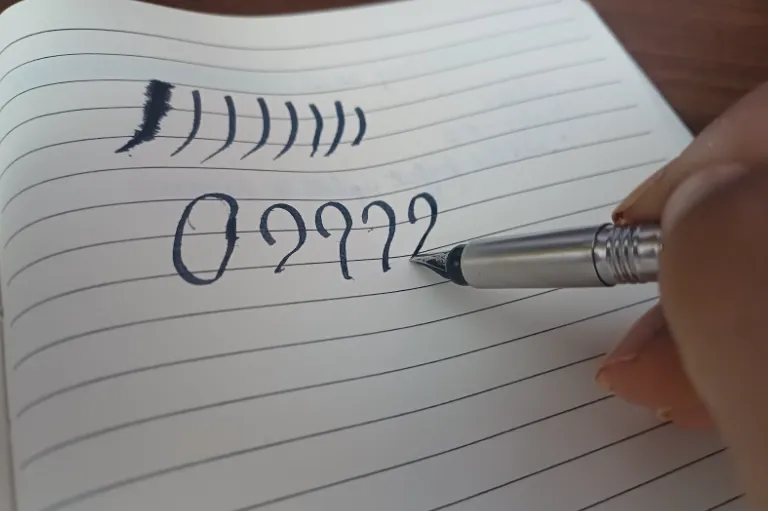
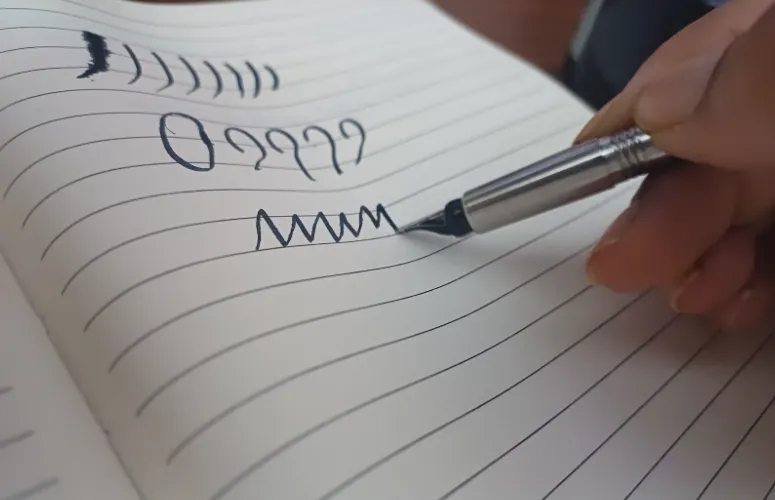
2. Practice the Alphabet
Start with lowercase, then uppercase. Focus on consistency in size and slant.
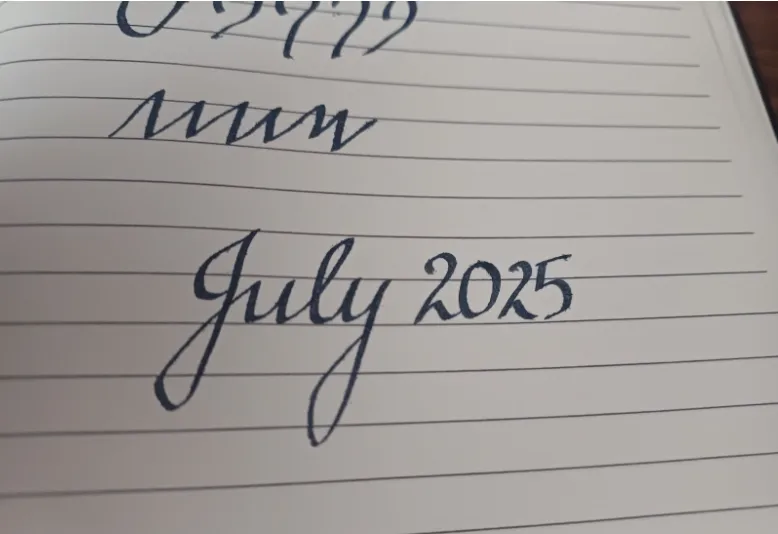
Try Faux Calligraphy
If you don’t have brush pens, use any pen to fake the look—write in cursive, then thicken the downstrokes.
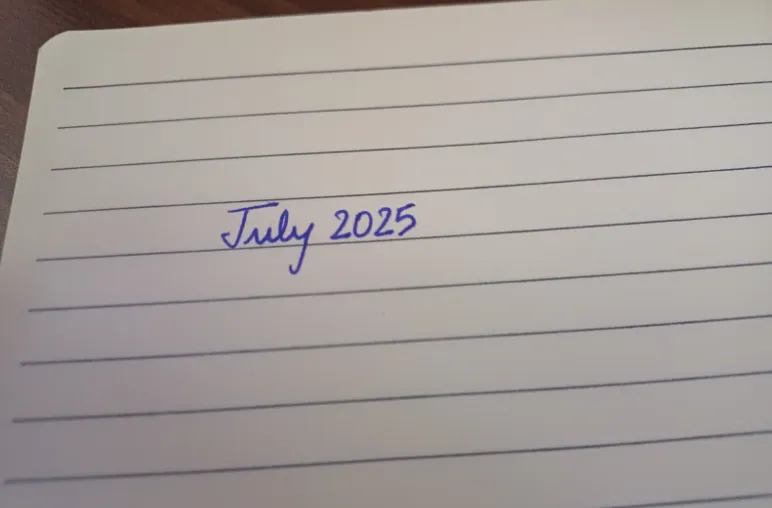
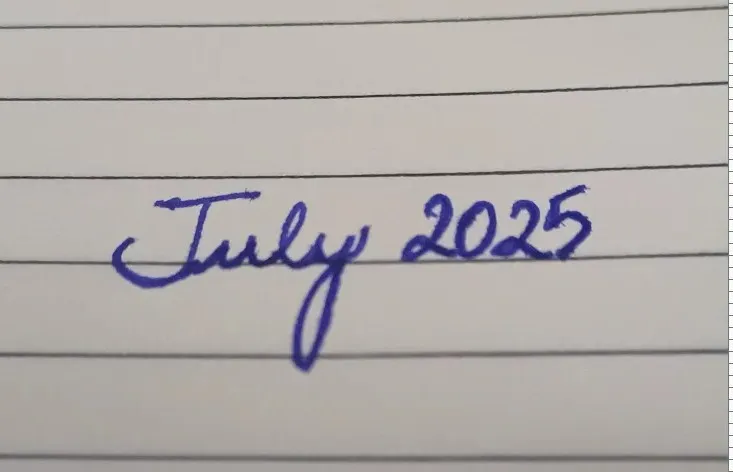
Combine Letters Into Words
Practice connecting letters smoothly for headers or how to draw bullet journal headers.
Add Flourishes and Embellishments
Experiment with swirls, underlines, and doodles for how to decorate bullet journal and bullet journal doodles how to.
Tips for Beautiful Bullet Journal Calligraphy
- Go Slow: Rushing leads to shaky lines.
- Use Guidelines: Draw light pencil lines to keep letters straight.
- Lift the Pen: Pause at the end of each stroke.
- Consistent Practice: Even 10 minutes a day helps.
- Experiment with Styles: Try different fonts—modern, serif, script.
- Embrace Mistakes: Small imperfections add character.
Incorporating Calligraphy Into Your Bullet Journal
Here are creative ways to use calligraphy, including many popular bullet journal techniques:
Monthly Headers: Make each month stand out (how to bullet journal for month).
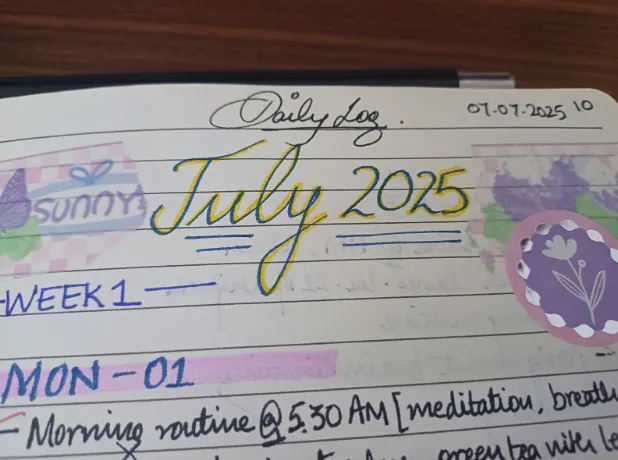
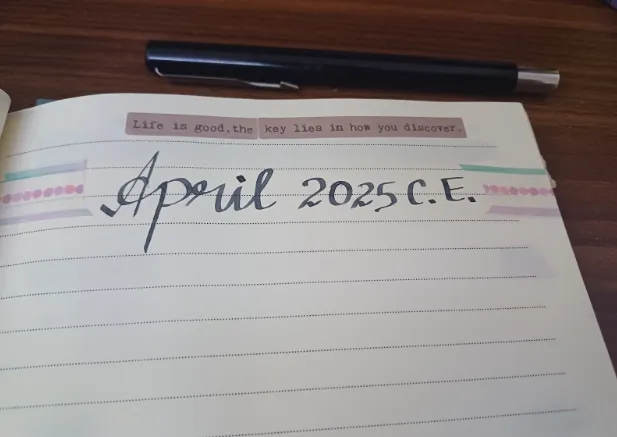
Weekly Spreads: Use calligraphy for days or events.
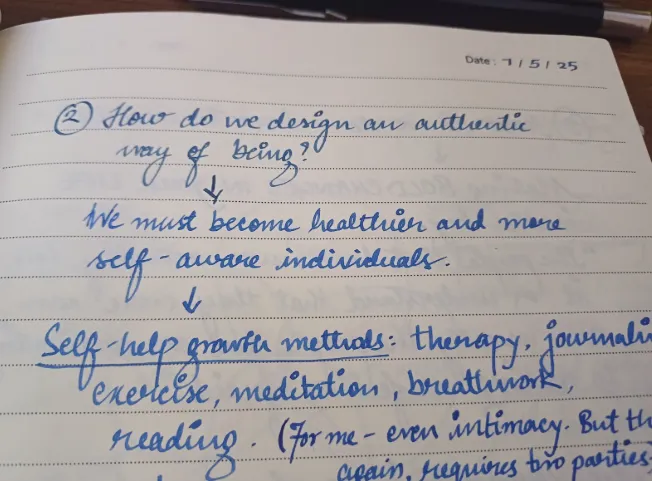
Quotes and Affirmations: Letter your favorite sayings (how to write quotes in a bullet journal).
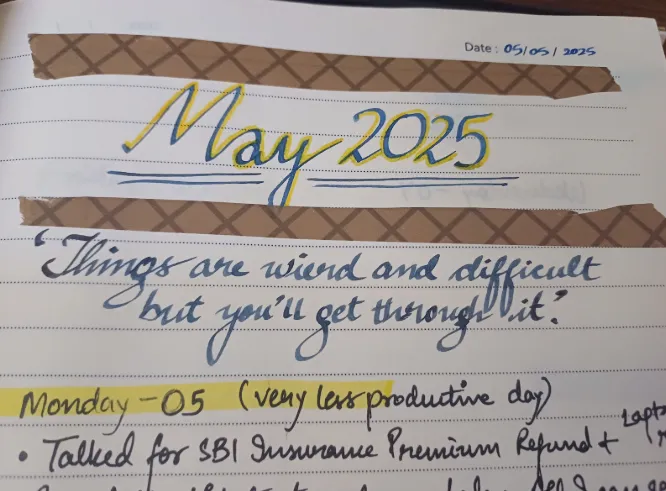
Trackers and Lists: Add flair to habit trackers, reading lists, or how to make a mood tracker bullet journal.
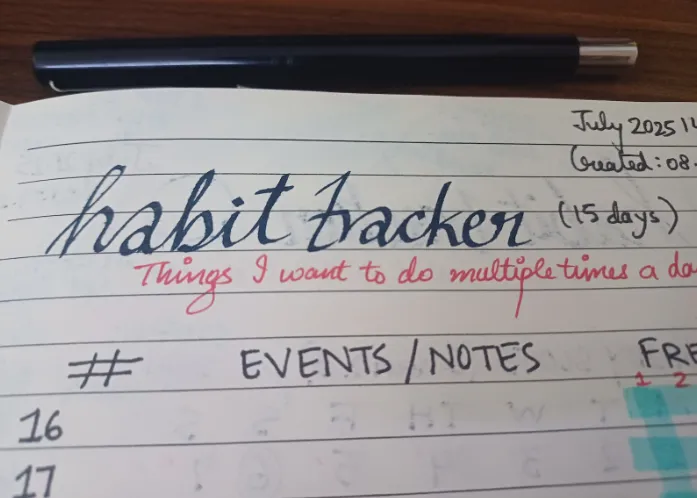
Special Pages: Create themed pages for birthdays, holidays, or memories.
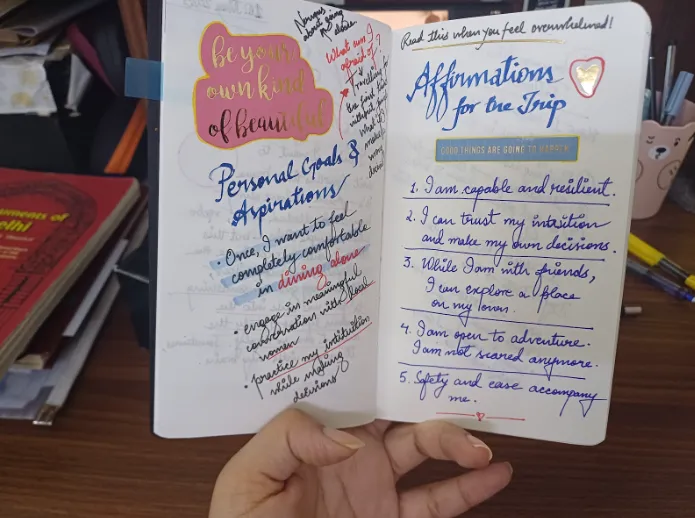
You can also explore how to draw a calendar in a bullet journal, how to decorate your bullet journal cover, and how to draw banners for bullet journal to further customize your layouts.
Troubleshooting Common Calligraphy Challenges
| Challenge | Solution |
| Ink Bleeding | Use higher-quality paper; test pens on a back page first. |
| Uneven Lines | Slow down, use guidelines, and practice basic strokes. |
| Hand Fatigue | Take breaks, stretch your hand, use light pressure. |
| Smudging | Let ink dry before touching; avoid resting on fresh ink. |
Developing Your Unique Calligraphy Style
As you gain confidence, start to develop your own style:
- Mix Fonts: Pair bold headers with delicate script.
- Play with Color: Use colored pens for emphasis or to match themes.
- Layer Elements: Combine calligraphy with doodles, how to use washi tape in bullet journal, or stickers.
- Create Signature Flourishes: Add personal touches to your pages.
Expanding Your Bullet Journal Skills
- How to use bullet journal effectively for productivity.
- How to start a bullet journal for beginners or how to start a simple bullet journal.
- How to maintain a bullet journal and how to keep yourself motivated to follow bullet journal.
- How to layout bullet journal for organization.
- How to make a bullet journal on lined paper, how to make a bullet journal index, or even how to make a bullet journal in keynote.
- How to set up a bullet journal for school or how to use a bullet journal for weight loss.
- How to use bullet journal for work and how to use bullet journal for project management.
- How to use bullet journal app, how to make a digital bullet journal, or how to create a bullet journal in onenote.
- How to make bullet journals on android, how to make a bullet journal on phone, or how to create a digital bullet journal with evernote.
- How to use bullet journal printables and how to use trello as a bullet journal.
- How to bullet journal in a planner or how to bullet journal when you’re not artistic.
- How to combine bullet planner with personal journal.
- How to decorate first page of project bullet journal.
- How to do a habit tracker in a bullet journal.
- How to add pages to bullet journal.
- How to make a key for a bullet journal.
- How to put your ideas in bullet journal.
- How to start a bullet journal to achieve goals.
- How to start a minimalist bullet journal.
- How to take meeting notes in bullet journal.
- How to write neat in a bullet journal
- TV show tracker bullet journal.
Recommended Resources for Further Learning
- Online Tutorials: YouTube channels like AmandaRachLee and The Happy Ever Crafter.
- Practice Worksheets: Free printable sheets for drills and alphabets.
- Books: “Modern Calligraphy” by Molly Suber Thorpe, “Hand Lettering 101” by Chalkfulloflove.
- Social Media: Follow #bulletjournal and #calligraphy on Instagram for inspiration.
Frequently Asked Questions
Do I need special pens for calligraphy?
No, you can start with any pen using faux calligraphy techniques. Brush pens offer more flexibility for advanced styles.
What if I make a mistake in my journal?
Embrace it! Use white gel pens for corrections, cover with stickers, or turn mistakes into creative elements.
How long does it take to get good at calligraphy?
Consistent practice is key. Most people see improvement within a few weeks.
Final Thoughts
Bullet journal calligraphy is more than just pretty writing, it’s a way to personalize your planning, express creativity, and enjoy a mindful, rewarding hobby.
Whether you’re learning how to write a bullet journal, how to use bullet journal, or exploring advanced techniques, start simple, practice often, and don’t be afraid to experiment. With time, your bullet journal will become a beautiful reflection of your unique style and journey.
Happy journaling!
